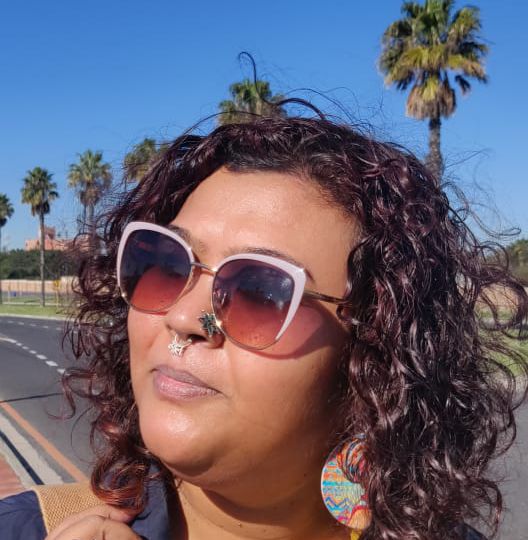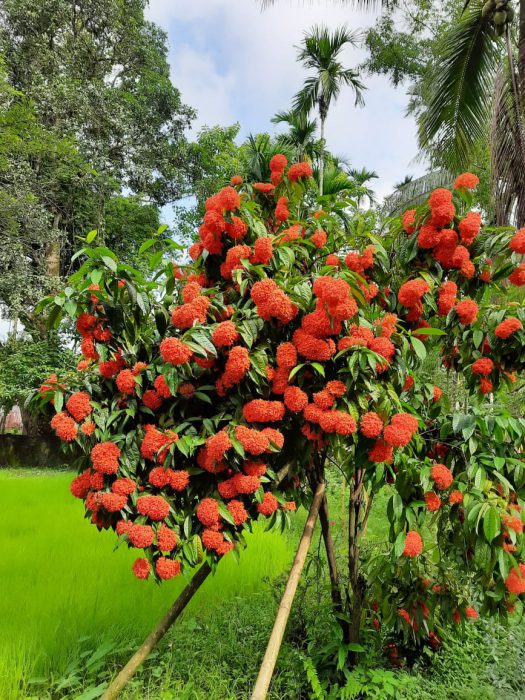
Rituparna Borah is co-founder and co-director at Nazariya: A Queer Feminist Resource Group based in Delhi. Currently a fellow of Outright Action International for Beijing 25 + on LGBT rights, Rituparna is a queer feminist activist, trainer, researcher, peer counsellor, and curriculum developer with over 15 years of experience in the field. She speaks here to Shikha Aleya about her experiences and insights about intersectionality.
Shikha Aleya (SA): Hi Rituparna and many thanks for the insights, time and energy you bring with you to this interview. To dive into the theme, what comes to your mind when you use the word intersectionality? Are there stories and experiences you could share to explain the concept?
Rituparna Borah (RB): Thank you for giving me this opportunity to talk about myself. So, intersectionality is an overused word. Everyone uses the word intersectionality without actually understanding its meaning. For many, intersectionality brings in many identities together and then they only focus on marginalisation. It’s true. For me, it reflects who you are, you bring your marginalisation and also your privileges. Take my example: I am not an indigenous and a lesbian and a disabled and an English speaking and a cis woman. The and does not work here. I am an indigenous, disabled, cis, queer, English-speaking woman who is from a village but now lives in Delhi, second-generation learner and sexual abuse survivor. Here you see my privileges as well as my disadvantages. Everyone should look at one’s vulnerabilities and one’s advantages. This is how intersectionalities should be looked at.
SA: Thank you, that is a useful entry point for exploring this theme. When these two concepts intersectionality and sexuality are brought together, how does one start understanding this for one’s own self? How did this understanding evolve for you personally, for example, being from the North-east, how has that shaped your lived experiences of intersectionality?
RB: Interesting; being from the North-east is not a description of a homogenous group. I am from rural Assam where internet connectivity is still an issue, where the village collective still takes decisions about people’s lives. So in my village, we have a concept called Budha Biya (Literally speaking: Old marriage) where people who elope and start living together at a young age are accepted by the village, but they are not legally or socially married, and get married after many years of a live-in relationship. My cousin got married at the age of 52 when his own son eloped with a girl and he wanted to get married. My cousin got married with his long-time live-in partner (whom we always called bou, meaning bhabhi or sister-in-law) in March this year. I asked my dad what would have happened if my cousin had died. My dad said even if they were not legally married, the village would have given the property to my sister-in-law. This is the idea of sexuality I grew up with. A concept which is alien to the mainland or even to many savarana communities of Assam.
There was also the idea of ‘pollution’ which is still practiced by many communities. Pollution has strong linkages with sexuality. While growing up we knew one thing – we cannot marry a Brahmin person (haha, my partner is Brahmin), of course along with no Muslim, no Christian, etc. etc. Plus, I have also seen Brahmins who come for rituals not eating food cooked in our house. And it was and is regarded as “normal”.
In 2009, when the high court decriminalised section 377, I was outed by the media and my parents saw it and the villagers also saw it. Out of the fear of being outcast from their society, my parents stopped talking to me. They talked to me only after a year. Now only my father is there. My mother passed away in 2016. He is ok about my relationship with my partner now. When my partner gave me a ring, I shared the news with my father. He told me that if I am happy, then he is also happy. So let’s see how it goes. Now, I am his care-giver as he does not keep well these days.
SA: In a recent post online you have shared your experience of successfully opening a joint bank account with your partner. What are your significant observations of this using an intersectional lens, in terms of identities, paperwork, the narratives of others who have tried to do the same?
RB: My partner and I are critical of linking rights with marriage. We want to have a social marriage. Earlier, I was critical even of social marriage. Now I am not. I feel if heterosexual feminists can get married to their lovers, why can’t I get married to my lover. Amrita has given me that stability. I wanted a joint account because it’s difficult to share household expenses. We went to the bank and gave a letter saying that we are a couple and we want to open a bank account. The bank manager asked us to come back after two days. It was a Friday when we went and we went back on Monday. It seemed he had done his homework. He told us we could open an account and it was done. It was that simple. I feel it was possible because of the bank manager. See, we did not want to link everything with marriage. We wanted even non-queer couples to be able to open joint bank accounts in any bank. Why should marriage be the only way through which such rights are guaranteed? This is how we saw it.
SA: In an earlier interview with In Plainspeak, you have spoken of your experience living with an invisible disability, fibromyalgia. Since disability is a key identity context, how has invisibility impacted the intersections with your other identities?
RB: Yes I have fibromyalgia and Bi-Polar disorder. Recently I was diagnosed with MDD (Manic Depressive Disorder) and a foot dysfunction called TIB post ((Posterior tibial tendon) dysfunction. My orthopaedic doctor saluted me for actually having completed one year of Kathak. I finally am trying to accept my disability. I have both psycho social and physical disability. I don’t look like someone who has disability (this is what people tell me). How does my disability impact my intersections with other identities? Well it’s a very difficult question. One of my ex-partners told me that they were tired of my fibromyalgia. Another ex told me that my desire for sex is because of my mania phase (bi-polar disorder). I have been asked to participate in many protests and marches; I want to go to them, but I can’t walk for more than 500 meters. Some of my friends ask me to lose weight and one of my ex-partners asked me to lose weight. I take meds, which induce weight gain, and added to that, I can’t exercise. These things impact me a lot. It’s like a vicious cycle.

SA: What are your observations and insights about ongoing efforts to build inclusion and safety across environments? What is working, what is not, and how do we build upon our learnings?
RB: Inclusion is very tokenistic. Look at the pride month. Many organisations, corporates wanted the representation of a queer person. Once the pride month was over, people stopped worrying about queer people. Whenever there is a panel, as a queer person, I keep being asked to talk about queer issues and to be honest I am tired. I have become like a parrot. Why can’t I talk about environment, or disability, or peace or, I don’t know, some other topic…?
Secondly, intersectionality has become a buzz word. Please understand that intersectionality is about vulnerability and also about privilege. We need to talk about our lived realities. That’s what intersectionality is all about.